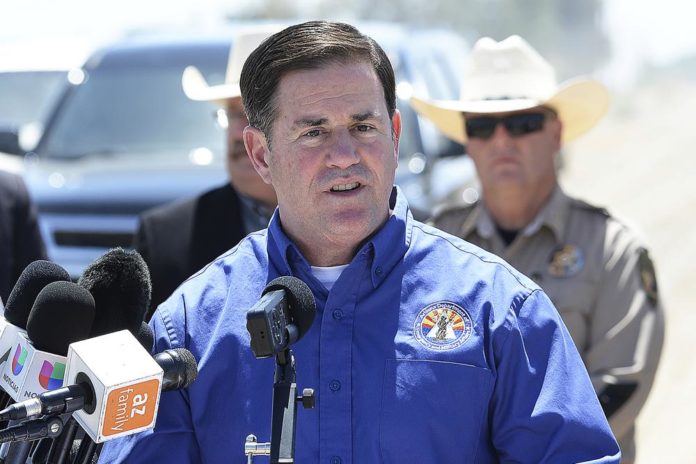
Republican leaders of the Arizona House plan to call members back to the Capitol Monday and try to muscle through a budget they negotiated with GOP leaders of the Senate and Gov. Doug Ducey, but there remain doubts that they can get the job done.
With only a one-vote margin and no Democratic support, House Speaker Rusty Bowers said Friday that despite some vocal opposition from GOP members, he is going to push to get Republicans to pass the $12.8 billion spending plan starting next week.
“We are going to move, let’s just put it that way,” Bowers said in an interview.
Bowers faces discord among his own caucus, with some believing there is too much spending in the budget and some objecting to the size of a historic tax cut out of fears it will hurt the state’s long-term finances as well as city finances.
Both chambers adjourned last week amid the split among Republicans with no plans to return until June 10, unless a deal was cut. But Bowers hopes pushing lawmakers may pay off.
“We’ve worked for six months on this … budget. And it’s a historic opportunity. And we’re gonna see where people stand on it,” he said. “Sooner or later, we’re going to have to fish or cut bait. And then, there’s still tomorrow.”
He still doesn’t have the backing of one outspoken member, Republican Rep. David Cook of Globe.
“At this point, I remain opposed to the budget proposal introduced by House leadership,” Cook said in a statement Friday. “I am hopeful that changes can be made to address my concerns including the negative impact to cities and towns, ongoing debt, unfunded pension liabilities, capital improvement needs, and investment in water infrastructure for the future expected Arizona growth.”
Cook also said he was concerned that billions of dollars of federal COVID-19 relief money “has created a false economy, and I believe it’s prudent to take some time to ensure we don’t send the state off of a fiscal cliff.”
The tax cuts in the proposal would shave at least $1.9 billion from state revenues when they are fully phased in, which would take three years. The biggest winners will be the wealthy, who will be mainly shielded from a new voter-approved surcharge and get the biggest benefits from a flat-tax proposal that lowers rates to 2.5%. The current top tax rate is 4.5% for high-earning Arizonans, plus the new 3.5% surcharge. Couples earning over $500,000 a year would pay a maximum of 4.5% under the proposal instead of 8% foreseen under Proposition 208.
Cook and Republican Sen. Paul Boyer have been outspoken in their concern that the tax cut will hurt cities, which get a set share of income tax revenue. Boyer said Friday he too was still opposed.
Republican Majority Leader Ben Toma said a week of negotiations with members has brought some changes to the budget deal, including an increase in the share of income tax revenue cities get from 15% to 17%. He contends it’s enough to spare cities from revenue declines. Whether that’s enough to get support from Cook and others remains unclear.
But a frustrated Toma said he was willing to see how the votes come out.
“At this point, I don’t think our members can hide behind anonymity anymore,” he said. “The board of truth (the vote tally board) is gonna say who’s up for what and they’re gonna have to explain. This is a good budget, all things considered. If they want to vote no, they’re gonna have to explain why.”
Other changes Toma noted are the removal of two tax credit provisions that some fiscal conservatives opposed. They include a low-income housing credit and one for so-called “angel investors” who put money into startups. Those will get separate votes.
Also of concern to Cook is the amount of debt the state is carrying. An Associated Press analysis shows the state is on the hook for $6.6 billion in pension debt and $7.6 billion in bonds, lease purchases, and payment deferrals. That includes $930 million owed to schools from a budget gimmick used following the Great Recession that delayed nearly $1 billion in payments. The proposed budget would pay school debt down by just $30 million.
Boyer is concerned about the scope and permanence of the tax cuts.
Karen Fann acknowledged Friday that she does not plan to follow the House lead and reconvene on Monday.
“The Senate will convene when we believe we have 16 votes to pass a budget,” she said via text message, noting that’s not now the case.
Lawmakers face a constitutional deadline of June 30 to enact a spending plan for the budget year that begins July 1.
Republished with the permission of the Associated Press.













